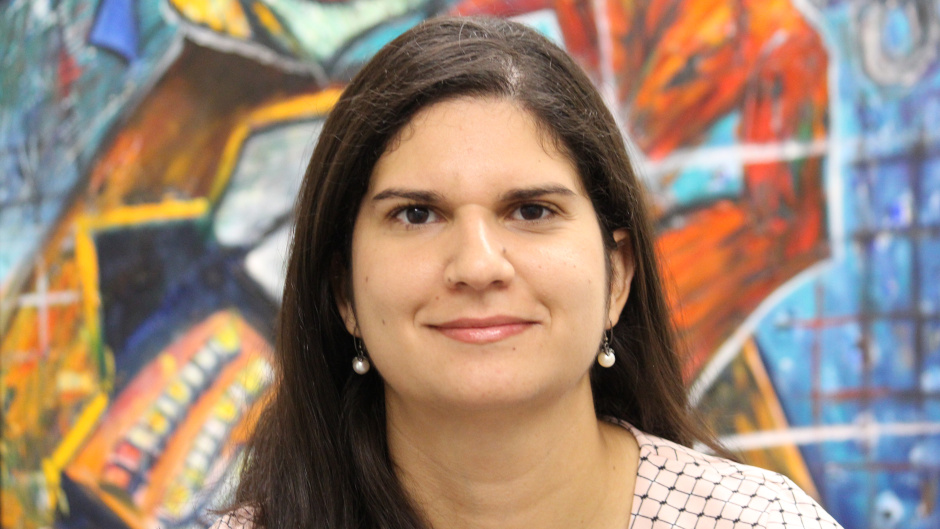An early interest in the detective novels of Jeffrey Deaver, with titles like Mistress of Justice, put the 26-year-old on the path of studying criminal justice, first graduating cum laude from Florida International University, then with a paralegal honors certificate from FIU's Legal Studies Institute at the College of Law.
"I was very interested in the justice system," she says "and the way that the courts decide cases. In college, studying criminal justice was the closest you could get to the law and the courts. At one point, I thought about joining the FBI, but I settled on law school pretty early on."
From Paralegal to Law Student
Castillo enjoyed researching and drafting basic motions and pleadings as a paralegal in a small law firm doing corporate law, commercial litigation, and immigration and it solidified her decision to push to the next rung: law school.
The 3L has interned for Judge Vance Salter at the Florida Third District Court of Appeal, Judge Marcia Cooke at U.S. District Court for the Southern District of Florida but it was a summer writing project that pleased her mightily.
Searching for Right Legal Writing Competition
"I was just looking for a law student writing competition in which I could participate," she says. "This one interested me because it focused on the fourth amendment and the criminal justice aspect of it regarding surveillance. It was a fascinating topic to me."
Castillo won the top prize in the American Bar Association Criminal Justice Section's 2017 William W. Greenhalgh Student Writing Competition for her entry, "Is Privacy Still Possible? The Fourth Amendment in an Age of (Digital) Surveillance."
Article on Privacy and the Digital Age
Her article makes the argument that the abundance of smartphones, GPS, red-light cameras, facial recognition software, drones, and a host of other technologies are significantly diminishing our sense of privacy. She weighs the definition of unreasonable search and seizure under the parameters of the Fourth Amendment in an age of a world of pervasive surveillance technologies.
With courts' allowing law enforcement to warrantlessly watch us from the sky, collect our locations via cell tower, and snoop into our dialing histories, Castillo posits if privacy is still possible.
Timely Topic on Fourth Amendment
Uniquely situated on the cusp of one of the most critical Fourth Amendment debates in a generation, the Supreme Court hears for argument on November 29 if advancements in digital surveillance technologies are intruding upon privacy expectations.
Along with a $2,500 cash prize, Criminal Justice magazine will publish Castillo's article in their Spring 2018 issue. She will receive her award, and accompanying plaques, at the section's meeting in Washington, D.C. in November.
Castillo is reveling in her final year at Miami Law. She is the executive editor of the University of Miami Law Review and participates in the Federal Appellate Clinic. She is pondering a career as a public defender, but in the meantime, she is "an avid reader of Supreme Court news and the biographies of Supreme Court Justices, according to her curriculum vitae.
Mistress of Justice, indeed.

